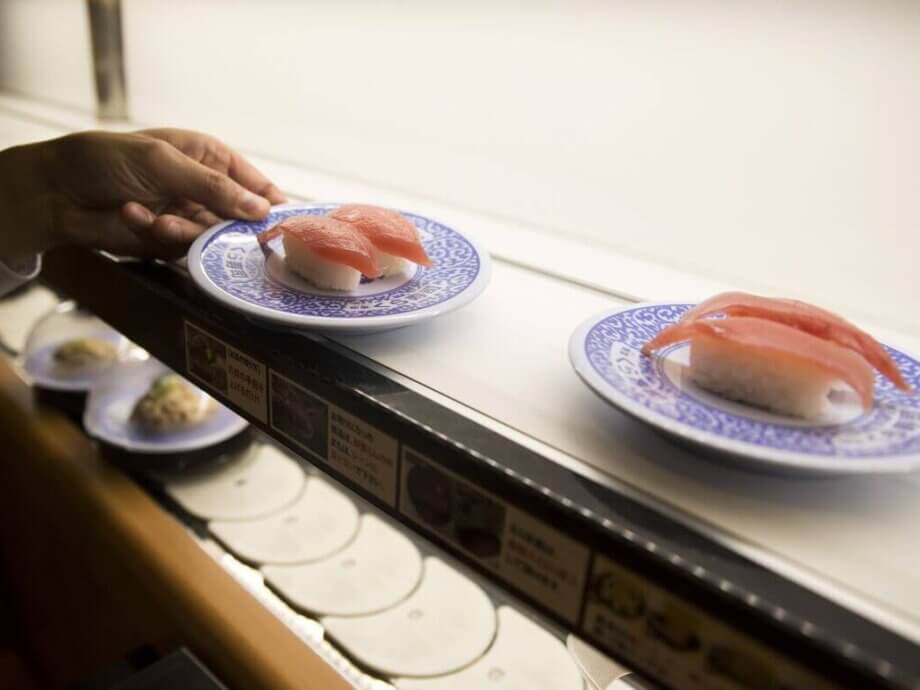Viral Prank at Tokyo Sushi Restaurant Ignites National Debate
In March 2024, a viral social media stunt at a Tokyo conveyor belt sushi restaurant reignited Japan’s ongoing struggle with so-called “sushi terrorism”—a term used to describe a wave of disruptive, unhygienic pranks targeting the country’s beloved dining establishments. The latest incident, involving a 16-year-old boy and an unwrapped condom, has not only led to criminal prosecution but also sparked widespread public outrage, renewed calls for stricter penalties, and a deeper conversation about social media’s influence on youth behavior and business reputations.
- Viral Prank at Tokyo Sushi Restaurant Ignites National Debate
- What Happened at Kura Sushi?
- Legal and Business Consequences
- What Is ‘Sushi Terrorism’?
- Why Has ‘Sushi Terrorism’ Become a Crisis?
- Public Reaction: Outrage, Blame, and Calls for Accountability
- Social Media, Youth, and the Pursuit of Viral Fame
- Industry and Government Response: Cracking Down and Cleaning Up
- Broader Implications: Culture, Law, and the Future of Dining in Japan
- In Summary
What Happened at Kura Sushi?
The incident took place at a branch of Kura Sushi, one of Japan’s major conveyor belt sushi chains, in Tokyo’s Toshima Ward. According to police and multiple news reports, the 16-year-old, whose name has been withheld due to his age, was dining with a group of friends on the night of March 28. During the meal, one of his companions placed an unwrapped condom into the slot used for returning empty plates—a key part of the restaurant’s automated system. The boy then took a photograph of the scene and uploaded it to social media platform X (formerly Twitter).
The image quickly went viral, amassing over 10,000 views in less than 24 hours. Online users rapidly identified the restaurant chain and location, prompting a flood of customer complaints and inquiries to Kura Sushi’s management. The restaurant was forced to close temporarily to disinfect the entire premises and address the public relations crisis.
Police were able to identify the group responsible using security camera footage. The boy admitted to the act during questioning, reportedly telling investigators, “I wanted to post something funny and see how my friends reacted. I did it without thinking about the consequences.”
Legal and Business Consequences
Kura Sushi’s management filed an official complaint with authorities, citing obstruction of business. The company stated that the prank not only disrupted operations but also required extensive cleaning and damage control to reassure customers about hygiene and safety. The Tokyo Metropolitan Police Department referred the teenager to prosecutors, and he now faces charges of obstructing business by fraudulent means—a serious offense under Japanese law.
Such legal action is becoming increasingly common in response to “sushi terrorism” incidents. Restaurant chains across Japan have adopted a zero-tolerance approach, pursuing civil and criminal cases against offenders in an effort to deter future pranks and restore public trust.
What Is ‘Sushi Terrorism’?
The term “sushi terrorism” (kaiten sushi tero) emerged in early 2023 to describe a disturbing trend: individuals, often teenagers or young adults, filming themselves performing unhygienic or disruptive acts in restaurants—especially conveyor belt sushi establishments—and sharing the footage online for viral fame. These acts range from licking communal soy sauce bottles and utensils, to tampering with food on the conveyor belt, to adding excessive wasabi to strangers’ sushi.
One of the most notorious early cases involved a customer at a Sushiro restaurant in Gifu Prefecture who licked a piece of sushi and a communal soy sauce bottle before placing them back for others to use. The video, initially posted on Instagram, was viewed over 40 million times on Twitter, sparking national outrage and a cascade of copycat incidents at other chains.
The phenomenon is not limited to sushi restaurants. Similar pranks have been reported at yakiniku (grilled meat) restaurants, convenience stores, and other eateries, where perpetrators have, for example, used a toothpick and returned it to a communal holder or climbed into a freezer full of ice cream.
Why Has ‘Sushi Terrorism’ Become a Crisis?
Japan is renowned for its strict hygiene standards, social etiquette, and emphasis on group harmony. The rise of “sushi terrorism” has therefore struck a nerve, challenging deeply held cultural values and threatening the reputation of an entire industry. Conveyor belt sushi restaurants, in particular, rely on customer trust in the cleanliness and safety of their automated systems. Even a single viral incident can lead to a sharp decline in business, as seen in the aftermath of several high-profile pranks.
According to Wikipedia and major Japanese news outlets, the impact has been significant:
- Restaurant chains have been inundated with customer complaints and forced to undertake costly, time-consuming cleaning measures.
- Some chains have considered removing communal condiments and utensils, or even replacing physical conveyor belts with virtual systems to prevent tampering.
- Shares of parent companies, such as Food & Life Companies Co., Ltd. (which owns Sushiro), have dropped in response to negative publicity.
- Legal actions have resulted in arrests, prosecutions, and civil lawsuits seeking millions of yen in damages.
In response, the Japanese government and industry leaders have called for vigilance. Agriculture Minister Tetsuro Nomura commented on the issue, stating:
“It is very unfortunate that such an act took place, as it had a significant impact on food industry operators, and the Ministry of Agriculture, Forestry and Fisheries will pay special attention to the situation in the future.”
Public Reaction: Outrage, Blame, and Calls for Accountability
The condom prank, like previous incidents, has provoked a strong reaction from the Japanese public. Social media platforms and news websites have been flooded with comments expressing shock, anger, and disappointment. Many users have questioned the moral compass of the perpetrators and the influence of their peer groups.
One message on the Sponichi Annex news website captured the prevailing sentiment:
“I’m shocked that he cannot tell right from wrong. The reason, I guess, is simple: the people around this boy are at the same level as him, so they do things like this and find it funny.”
Others have supported the restaurant’s decision to press charges, arguing that only strict punishment will deter future incidents. Some voices have gone further, demanding that the authorities publicly name the boy and his parents, blaming family upbringing for the behavior:
“It’s the parents’ fault. They should have taught their children the kind of problems they could get into if they did something like this.”
However, there is also a sense of bewilderment at the entire trend. As one commenter on the Asahi website put it:
“I don’t understand why people find something like this ‘funny’ and I don’t understand why someone would bother uploading it to the internet. Do they not know that in the past, this sort of nuisance behaviour has become a serious problem? A little prank can ruin your life.”
Social Media, Youth, and the Pursuit of Viral Fame
Experts and commentators have pointed to the role of social media in fueling “sushi terrorism.” The desire for online attention, peer approval, and viral fame appears to be a common motive among perpetrators. Many of those involved are teenagers or young adults—sometimes referred to in Japanese media as “Z combatants,” a tongue-in-cheek reference to Generation Z’s penchant for disruptive online behavior.
Psychologists note that the adolescent brain is particularly susceptible to risk-taking and impulsive actions, especially in group settings. The instant feedback and potential for widespread recognition on platforms like X, Instagram, and TikTok can override considerations of consequence or social responsibility.
In the case of the Tokyo condom prank, the boy’s own admission—“I did it without thinking about the consequences”—echoes a pattern seen in previous incidents. The pursuit of a “funny” or shocking post, amplified by the reactions of friends and followers, can quickly spiral into real-world harm for businesses, employees, and the perpetrators themselves.
Industry and Government Response: Cracking Down and Cleaning Up
Faced with mounting incidents and public pressure, Japan’s restaurant industry has taken decisive action. Major chains like Kura Sushi, Sushiro, and Hama-sushi have announced plans to:
- Install more security cameras to monitor customer behavior
- Remove or limit communal condiments and utensils
- Enhance cleaning protocols and publicize hygiene measures
- Pursue legal action against offenders, including civil lawsuits for damages
Some companies have even considered technological solutions, such as virtual conveyor belts or individualized serving systems, to minimize the risk of tampering. Business leaders argue that these steps are necessary to restore customer confidence and protect the reputation of Japanese dining culture.
The government, for its part, has pledged to monitor the situation closely and support industry efforts to maintain food safety and public order. The Ministry of Agriculture, Forestry and Fisheries has recognized the broader impact on the food sector and signaled its intention to take the issue seriously.
Broader Implications: Culture, Law, and the Future of Dining in Japan
The “sushi terrorism” phenomenon raises important questions about the intersection of technology, youth culture, and social norms in contemporary Japan. It also highlights the challenges faced by businesses in an era where a single viral post can trigger a nationwide scandal and significant financial loss.
Legal experts note that Japan’s laws on obstruction of business and public nuisance are being tested by new forms of digital mischief. The willingness of companies to pursue criminal and civil penalties may serve as a deterrent, but it also reflects a broader anxiety about the erosion of traditional values and the power of social media to disrupt daily life.
For many Japanese, the incidents are a wake-up call about the need for education—both at home and in schools—about digital citizenship, personal responsibility, and the real-world consequences of online actions. As one observer put it, “A little prank can ruin your life.”
In Summary
- A 16-year-old boy in Tokyo faces prosecution after posting a viral photo of a condom prank at a Kura Sushi restaurant, part of a broader trend known as “sushi terrorism.”
- The incident forced the restaurant to close temporarily, undertake extensive cleaning, and handle a flood of customer complaints.
- “Sushi terrorism” refers to a wave of unhygienic pranks in Japanese restaurants, often filmed and shared online for viral fame, that have damaged business reputations and sparked national debate.
- Public reaction has been overwhelmingly negative, with calls for stricter punishment, parental accountability, and greater awareness of the consequences of such behavior.
- Restaurant chains and the government are responding with increased security, legal action, and new hygiene measures to restore public trust.
- The phenomenon highlights the challenges of balancing social media culture, youth behavior, and traditional values in modern Japan.












